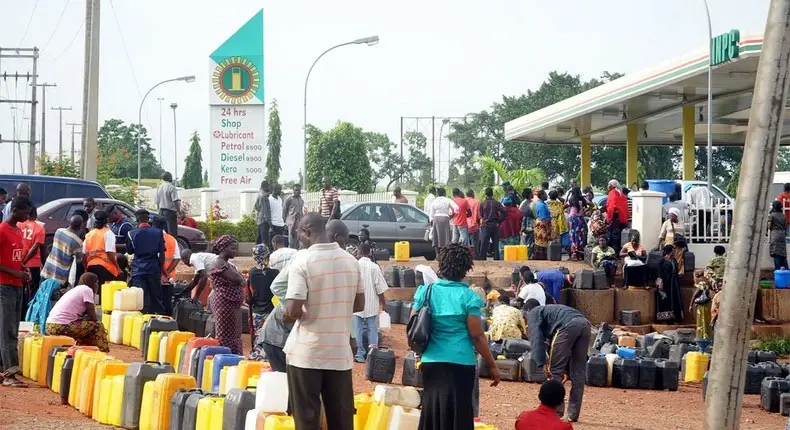FCT’s economy is hampered by ongoing gasoline shortages.
Due to the persistent scarcity of Premium Motor Spirit, PMS, also known as gasoline, sources of livelihood in the Federal Capital Territory, Abuja, appear to be in jeopardy amid the economic hardship sweeping the entire country.
While several gas stations are still closed due to a shortage of the product, a check by a PulseNets correspondent on Saturday found that some of the stations along Zuba are selling above N250 per litre, a development that has made it challenging for locals to get around.
As motorists continue to bemoan the difficulty in obtaining the product, the lengthy lines at the majority of gas stations in the region are alarming.
The Federal Government claims that the two-week-old backlog was brought about by the floods that rendered Lokoja, Kogi State, roads impassable.
According to PulseNets, a number of commuters and civil officials were left stranded on Friday since there was no vehicle to board.
Additionally, the development resulted in a clear fare increase, adding to the burden that the Giant of Africa’s economic realities had already placed on locals.
Mary Achingwa, a Federal Radio Corporation employee, told our correspondent that since the line started to form again at the beginning of this month, she has had to pay three times as much to get to work each day.
She said, “Things are just getting harder every day. We were complaining that transport fare is very expensive in Abuja not knowing that the worst was coming.
“Since this fuel crisis started, we spend triple of what we used to spend before reaching our places of work and this is so discouraging. The worst is that the price of everything increases day by day while salary remains the same”.
According to PulseNets’ results, the distance from Dutse Alhaji to Area 1—which was previously N300—is now N500 and above, while the distance from Dei-Dei to Berger and Wuse—which was previously N300 and N400—is now N500 and above.
Mr. Olawale, a town service driver, informed our reporter that the majority of drivers purchase fuel on the black market for N500 per litre, stating that it is impossible to maintain normal rates after purchasing the good for such a low sum.
He said, “The thing is, how much are we making? It is affecting all of us. When I buy fuel at the rate of N500 per litre instead N150, you should know that the transport fare cannot be the same”.
Additionally, our correspondent learned that several stores, most of which are located in the territory’s satellite territories, are starting to close due to a lack of gasoline to fuel their various commercial endeavours.
In Dutse Alhaji, Dei-Dei, Kubwa, Lugbe, and other areas of the city, barbershops, computer centres, shoe factories, and other private companies that rely heavily on generators for customer service are starting to close.
Mr. Chinedu Peters, a local who runs a Cyber Cafe in Kubwa, claimed he had locked up his business because he was unable to purchase fuel.
He said, “In this part of the city, we don’t trust public power supply so we operate with generators and now we can’t power it anymore because of fuel issues. I was in line yesterday from morning until night, yet I came home without fuel.
“If I say let me buy this black market, how much are we making that we can afford that? I just told my workers to rest for some days, maybe it will subside soon”.
The arrival of the 146 truckloads of gasoline into the capital, however, was previously confirmed during a media briefing by Engr Adeyemi Adetunji, group executive director, downstream, Nigerian National Petroleum Company Limited, NNPC Ltd.
“146 petroleum tanker trucks have arrived at the depot for dispatch into Abuja and the environs.
“Trucks have continued to arrive at the depot for onward dispatches. Product delivery to other parts of the country are also continuing with the improved vehicular movements northwards,” Adetunji had said.













